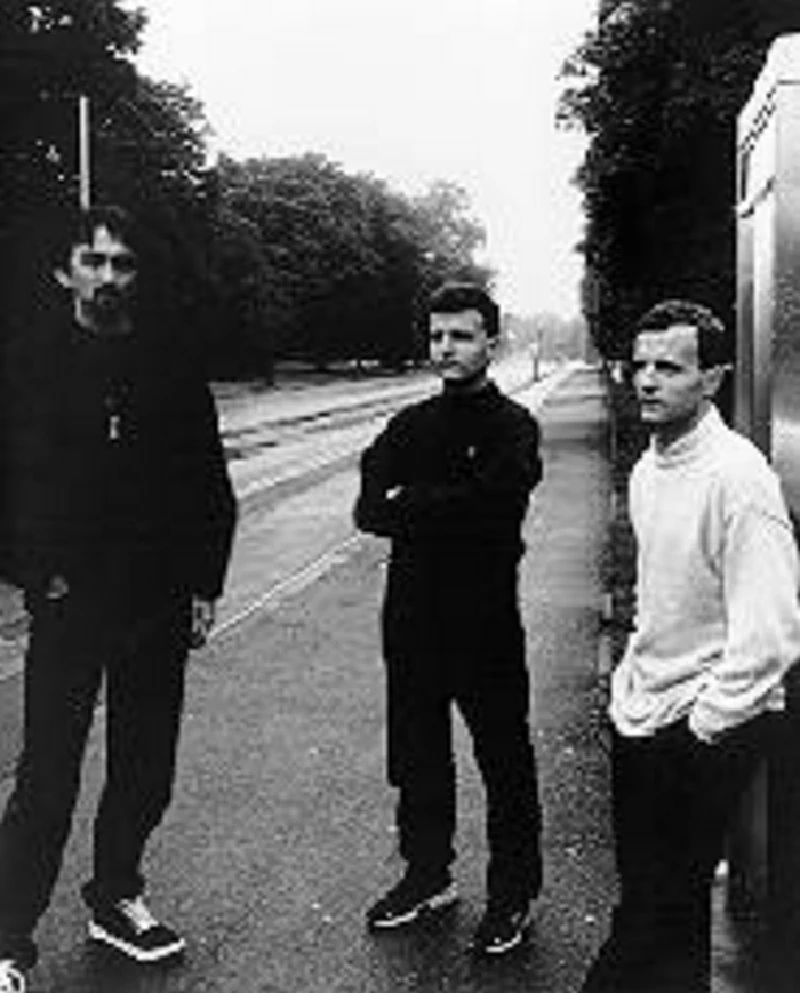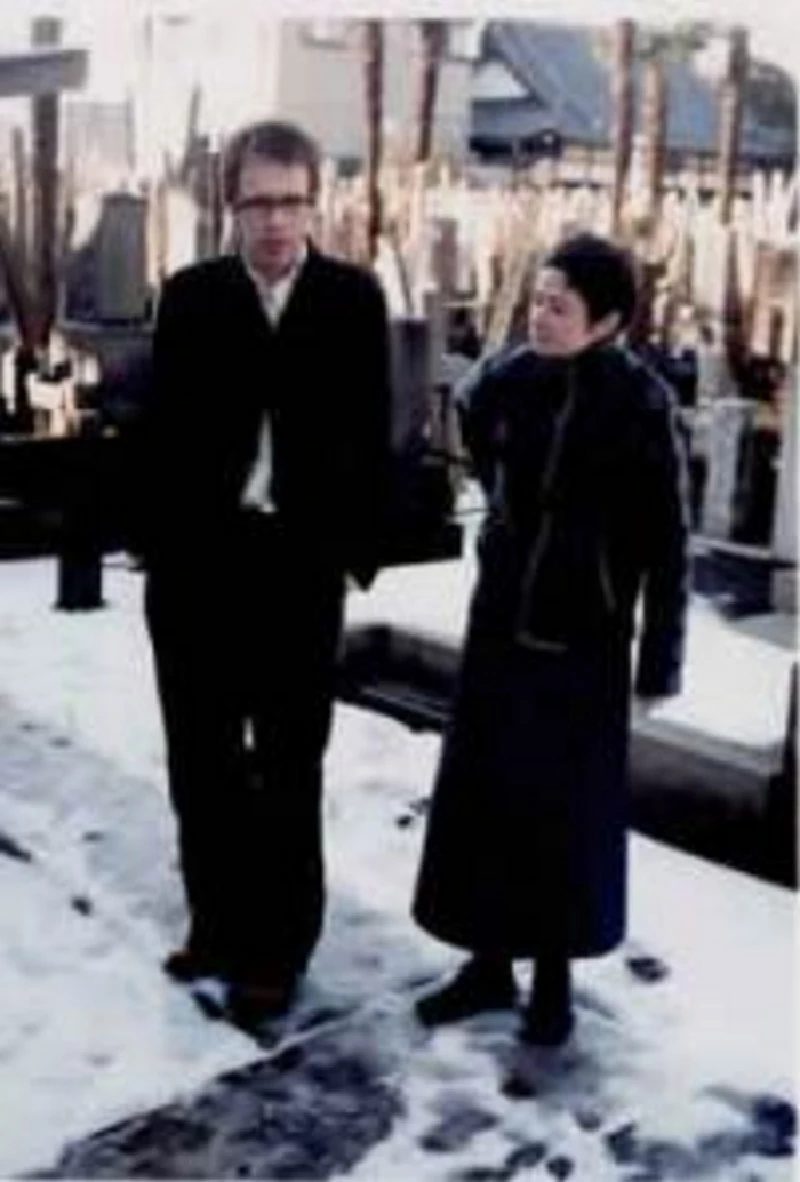Miscellaneous - Interview with Tracy Lee Jackson
by Cila Warncke
published: 17 / 1 / 2002

intro
If anyone had been playing ‘spot the record label boss’ in a small Whitehall pub on a damp March evening, chances are they would have pointed to one of a half-dozen-odd restlessly handsome men clustered in a corner, joking over pints. They would not, ho
If anyone had been playing ‘spot the record label boss’ in a small Whitehall pub on a damp March evening, chances are they would have pointed to one of a half-dozen-odd restlessly handsome men clustered in a corner, joking over pints. They would not, however, have likely singled out the petite denim-jacketed girl perched on the edge of the booth; someone’s girlfriend, undoubtedly. Don’t look away quite yet though, watch the dynamic of the lopsidedly mixed group; watch long enough to realize that – far from being some mere tag-along – the effervescent ash-blonde beauty is the undeniable center of attention. Lean in close enough to overhear snatches of conversation, perhaps even an introduction: “I’m Tracy, yeah, I run Dreamy." Well, so much for the men, so much for stereotyping… hell, so much for the English. Because not only is Ms. Tracy Lee Jackson a perhaps completely atypical British label chief, she isn’t even British. In fact, she hails from Southern California, via a stop-over in a Las Vegas wedding chapel. You see, not so many years before she became the guardian of arco – the self-described "world’s quietest band" and a handful of other, equally ethereal, pop acts Tracy Jackson was a Sub-Humans-listening punk rock girl, slinging CDs in a San Diego record store. Then, in one of those fate-must-have-taken-a-hand moments she decided to venture out of both "my little hardcore world" and SoCal, and hop a plane to London. Not with anything particular in mind, just to test the waters, to get a change of scene. When asked how her youthful jaunt to London turned into a permanent residence she smiles and shrugs, "well, I had to get married." Later, she explains, "my visa was running out, and one of my friends said, “we’re having too much fun, you can’t leave” so we flew out to Vegas with a bunch of friends and got married." So instead of a one-way trip to California Tracy got a wedding ring, and the legal right to call London home. Before Dreamy was so much as a twinkle in Ms. Jackson’s mind, though, she started off working for one of V2’s indie labels, Blue Rose. Among the artists she worked with and promoted was arco, a small willfully wistful band that had never so much as played a live show. As arco frontman Chris Healy recalls, "she got hold of a demo I'd sent somewhere, liked it, noticed I lived in the area too and called me up. I went round to see her… I was a bit overawed to tell you the truth, having never set foot inside any label anywhere, and here was this exotic, wildly fashionable American creature talking enthusiastically in jargon I barely understood." Despite the superficial differences between them – and the radical musical departure that Tracy was making from her punk roots – the laconic Lincolnshire-born musician and the bubbly expatriate hit it off. "I realised she was completely genuine, and I felt or hoped she thought I was too"’ Healy recalls. In fact, he had enough faith in her that when she called with bad news arco was ready. Blue Rose was folding, and Tracy had the unenviable task of calling the bands she was working with and telling them she’d lost her job; telling them good-bye, she thought. She insists, modestly, that she was stunned when all three artists – arco, Graham, and Kirk Lake – called her back and invited her to be their manager. Her first task upon accepting their invitation was to get the perennially shy arco on a stage. Tracy doesn’t recall it being much of an effort. In fact, their first show sold out. For Healy, though, playing live was a daunting prospect – several years on he still complains that it makes him feel "cheap." But "somehow her faith gave me the nerve to do it, which was an enormous thing for me" he says. One obstacle had been hurdled, but there was a whole raft still in store for the Anglo-American alliance. Even after Tracy managed to nudge arco onstage she found little encouragement as she shopped their music around to various record labels. "Arco weren’t bothered" she recalls. "They were just going to keep playing music…[but] it seemed unfair that arco were so good and nobody was going to do anything about it." Definitely not one to just sit around and wait for something to happen, Tracy suggested what seemed to be the obvious solution – releasing arco’s music on her own label. With a hefty dose of optimism, and a chunk of borrowed money, they got ready to release Dreamy’s first EP in early 1998. Professional difficulties with getting the records manufactured, combined with the personal upheaval of a divorce, however, conspired to make 1998 "the most traumatic year I’d ever experienced, I woke up every morning wondering “how am I going to get through this?" Tracy admits. It is hard to imagine the witty, generous, stolidly self-assured Dreamy crew ever being anywhere near despair, but there is a low-key determination – stubbornness even – that offers evidence of trials visited and bested. At any rate, they waded through "all the tragedy" (as Tracy characterizes it) together, and into 1999 when suddenly John Peel was ringing up, and an American journalist (no less!) called arco’s debut EP 'Coming Up' the best record of the year. From the original three acts Dreamy has grown to include a diverse group of eight artists, adding Santa Sprees, Tuesday Weld, Lauren Hoffman, Ciaran, and Ninian Hawick to the family. Not surprisingly, Tracy is up to her elbows in everything from "accounting, to listening to demos, to checking the post." The best thing about this hands-on sort of life is, she says, that "I know how everything fits in, I know which puzzle pieces go where." Of course, it is a challenge, running a label with the most limited of resources, handling everything with care. As anyone would, she says, "I’d love to have an office, I’d love for it [Dreamy] to be my only job… for it to be the artists’ only job," she says. Ultimately though, "money isn’t my motivation… it would be a means to an end." Settled, sorted, ensconced in a corner booth in a Whitehall pub, Tracy Lee Jackson has lost none of the verve and enthusiasm that fueled the founding of Dreamy. Bantering and downing pints Tracy, along with Graham, the members of arco, and a handful of friends hardly look like a typical entertainment industry posse – because they quite simply are not. This is not the sort of label where conversations revolve around numbers, marketability, or industry politics; they are more likely chatting about work, or their kids, or an upcoming gig. What is perhaps most telling about Dreamy, and the special symbioses that exists between Tracy Lee Jackson and her artists is that they seem to agree effortlessly on what defines their musical mission. Trying to explain her labour of love, Tracy’s highest compliment for her artists is that, "they aren’t desperate to be popstars… they aren’t 18 and ready to conquer the world… it’s about making music that people love, that makes a difference." Chris Healy, who has been there since before the beginning, puts it thusly, "the reason Dreamy works is because everyone on it that I've met has had the same overall approach - they're going to do their thing exactly as they want it, in their own time, and they're not going to lose sleep over how many units it sells. What matters is doing it." And in a world rife with pragmatism, and bottom-line-watching, the firmly-grounded dreamers of Dreamy make a compelling case for following your heart, and believing that money is merely a means to an end. As Dreamy grows one can only hope that they will keep on proving all the stereotypes wrong, and keep on doing things their way. After all, Tracy’s pink-hair-and-safety-pins days may be long gone but, as her spirit of adventure, and refusal to compromise proves, she is definitely still a punk at heart.
Label Articles:-
Dreamy (9)Picture Gallery:-




most viewed articles
current edition
Tossing Seed - InterviewMotorcycle Boy - Interview
Last of the Lovely Days - Interview
Lemonheads - O2 Ritz, Manchester, 16/8/2025
Waterboys - Roundhouse, London, 1/6/2025
Cary Baker - Down on the Corner: Adventures in Busking and Street Music
Belouis Some - Video Vault
Robert Forster - Interview
Morrissey - Photoscapes
Brian Wilson - 1942-2025
previous editions
Flip Side - Raging PagesBob Mould - Brooklyn Bowl, O2 Academy, London, 11/2/2016
Bill Hicks - Profile
Stereogram Revue - Voodoo Rooms, Edinburgh, 2/12.2015
That Petrol Emotion - That Petrol Emotion, Town and Country Club, London, 1988
Dave Greenfield - 1949-2020
Miscellaneous - Minehead, Somerset, 8/5/2009...10/5/2009
John Clarkson - A Life in Music
School - Interview
Ain't That Always The Way - Alan Horne After The Sound of Young Scotland 2
most viewed reviews
current edition
Liarbilitys - VandalheartKirk Adams and Ed Woltil - Eat The Sunshine, Drink The Starshine
Silver Biplanes - Coming Up For Air
Big Flame - Peel Sessions 84-86
Suzie Ungerleider - Among The Evergreens
Bruce Dickinson - More Balls to Picasso
Good Charlotte - Motel du Cap
Wolf Alice - The Clearing
Rupert Wates - Father to the Man
Phew, Erika Kobayashi,, Dieter Moebius - Radium Girls
Pennyblackmusic Regular Contributors
Adrian Janes
Amanda J. Window
Andrew Twambley
Anthony Dhanendran
Benjamin Howarth
Cila Warncke
Daniel Cressey
Darren Aston
Dastardly
Dave Goodwin
Denzil Watson
Dominic B. Simpson
Eoghan Lyng
Fiona Hutchings
Harry Sherriff
Helen Tipping
Jamie Rowland
John Clarkson
Julie Cruickshank
Kimberly Bright
Lisa Torem
Maarten Schiethart